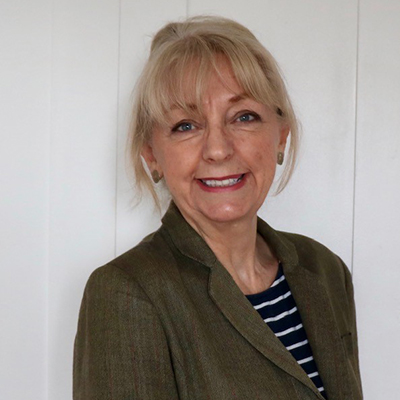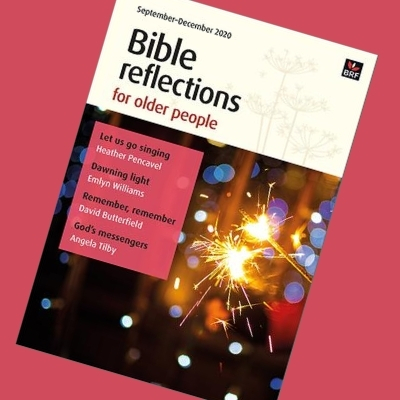In this, the third of our ‘Living Well’ series on the art of appreciation, Eley McAinsh reflects on the importance of expressing kindness towards others.
‘One another living’
When I was given the theme ‘Appreciating one another’, I knew I had a head start. As editor of Bible Reflections for Older People, I work at least a year ahead and one of our regular contributors, Roger Combes, had already submitted a thoughtful series of meditations on the Christian meaning of ‘one another living’.
In his introduction, he writes:
This little phrase ‘one another’ comes several dozen times in the New Testament. Paul, John, James, Peter and the writer to the Hebrews, like Jesus, all use it and call on Christian disciples to be mutually supportive of each other. ‘One another living’ is a mark of Christ’s people locally and universally. It comes in many forms but is always practical. Sometimes it feels more like giving and sometimes it feels more like receiving, but in practice it is both. Christ challenges us, and blesses us, through one another.
Our recent months of lockdown have made us aware of ‘one another’ in new, intense and contradictory ways. Isolation from family and friends, neighbours, colleagues, church communities and even passing acquaintances, has made us long for human company, warmth and touch. But the ever-present threat of infection has made us recoil from close contact and learn to see others as sources of danger, to be sidestepped and ‘distanced’.
‘One another living’ is a mark of Christ’s people locally and universally.
Anxiety and loss have left many of us short-fused, irritable and quicker than usual to criticise and judge others. Yet as normal routines and supports fell away, new and good things emerged. All over the country, people have found novel, creative ways to be more connected than ever: helping, volunteering, looking out for one another, making sure no one in the community was forgotten.
For every story of selfish behaviour, there was another of kindness, and of people going way further than an extra mile to help others. From care workers who moved into their care homes to keep vulnerable residents safe, to medical and support staff who worked round the clock in intensive care, to supermarket workers who kept the shelves stacked as best they could in the face of unimaginable pressures and frequent abuse: these, and so many others like them, have shown the best of compassionate and selfless humanity.
Kindness and ubuntu
The theme of this year’s Mental Health Awareness Week was kindness. At the beginning of the week, Professor Peter Fonagy wrote:
Our capacity to see both our own and others’ point of view is the essence of our humanity… Kindness overcomes our natural and necessary vigilance and opens our minds.
He concluded:
[Kindness] is important because our ability to think about other people’s minds has enabled us to create a shared social world in which we can think together, trust and cooperate. The pandemic has reminded us that only by thinking together can we hope to survive and flourish, and that excessive vigilance breeds lack of concern, unkindness and social irresponsibility. We need to apply these lessons more widely, both for our collective mental health and to help the most vulnerable and isolated.
In a radically different context and register, Archbishop Desmond Tutu says something similar when he talks about the African concept of Ubuntu. Translated inadequately as ‘I am because we are’, ubuntu is the heartbeat of ‘one another living’. As he says, ‘Ubuntu… speaks of the very essence of being human.’
The Archbishop goes on:
[We] say… ‘Hey, so-and-so has ubuntu.’ Then you are generous, you are hospitable, you are friendly and caring and compassionate. You share what you have. It is to say, ‘My humanity is caught up, is inextricably bound up, in yours.’ We belong in a bundle of life. We say, ‘A person is a person through other persons.’
Here, in the middle of August, things are still uncertain and unsettling. I, like most of my colleagues, friends and family, am still working from home. Restrictions are loosened and tightened, interpretations multiply, tolerance is tested on all sides as risks are weighed against freedoms. Plans, whole lives, are on hold.
This article is one of a series on ‘Living Well’, with an underlying theme of appreciation: appreciating God’s world, the moment, one another… One of the best ways to show our appreciation of one another is to be kind: kind in the way that Archbishop Tutu, Professor Fonagy and Roger Combes have all described.
One of the best ways to show our appreciation of one another is to be kind.
A recent pastoral letter from the Rector of Dorchester Abbey in Oxfordshire, Sue Booys, is not only practical and timely, it perfectly captures the mutuality of ‘one another living’. Addressing the new rule about wearing face coverings in church, she acknowledged that for some people the change in the rule should have come weeks ago, while others struggle and rebel against the very idea of having to wear masks during church services. But wisely, and kindly, she concluded:
Perhaps most importantly, wearing a mask is an outward and positive sign of our love towards friends and neighbours – a sign of our commitment to keep one another safe.

Eley McAinsh is a member of BRF’s marketing and communications team and the editor of Bible Reflections for Older People.

Bible Reflections for Older People
Written by older people for older people, these reflections are designed to bring hope, assurance and sustenance, reminding the reader of the presence and love of God. In each issue are 40 Bible reflections and prayer suggestions to use and revisit as often as is needed. In the central section, Debbie Thrower of BRF’s Anna Chaplaincy ministry offers interviews and ideas to encourage and inspire.
Window face masks
Face masks can be unhelpful when it comes to communicating with those who are hard of hearing. In a recent blog post, Debbie Thrower shows how you can make, or where you can buy, a window face mask.
